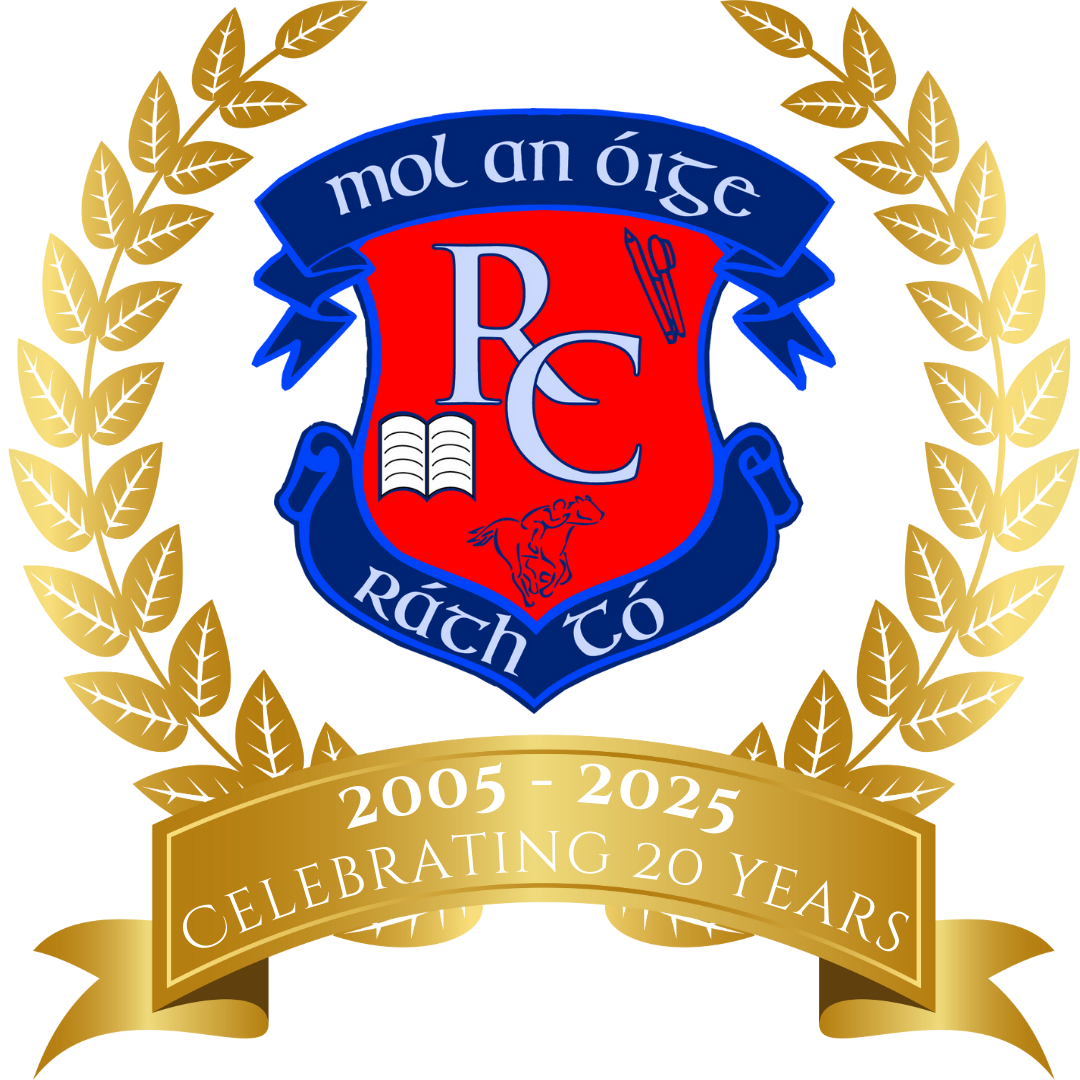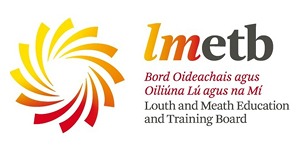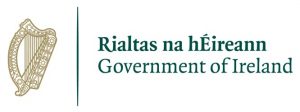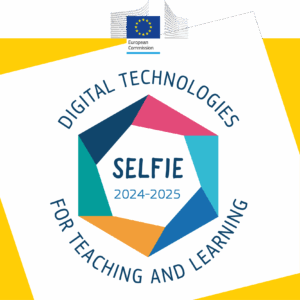Digital Learning Consultation

Summary of Responses
In line with DES Circular 38/18, we recently undertook a consultation in relation to mobile phones and digital devices in school among students, parents and staff. The initial consultation was by way of a survey asking for the thoughts of students, parents and staff on how they view the integration of the devices as an educational tool in the college. We very much appreciate the time taken by all who took part.
Approximately 75% of students, 30% of parents and 90% of staff took part.
The responses are summarised in brief below. A graphic summary of the responses can be found by clicking the button at the bottom of this page.
Learning and Teaching
In relation to digital technology and learning and teaching, approximately 77% of students who responded and 85% of staff who responded said that the use of technology in the classroom was moderately important, important or very important. In relation to the Digital Framework and the new Junior Cycle, 64% of parents who responded felt using the iPad as a tool to support learning was the best way of developing digital skills, with 60% also saying the use of computer labs was best.
In relation to their existing experience of learning, 30% of students who responded said using their iPad best described how they learned in class, 27% said using textbooks and 43% said using iPads and textbooks.
Parents were asked in this section about their knowledge of Schoology. 64% of parents who responded access their child’s Schoology using their parent account, but 46% of parents who responded were not aware of any of Schoology’s parent monitoring features.
iPads
Students and staff who responded identified similar main advantages they see to the iPad. 48% of students and 61% of staff said iPads improve student research skills, 63% of students and 68% of staff said iPads offered a greater choice of resources for learning while 60% of staff also said that iPads offer them greater flexibility in the variety of teaching methodologies they can use. Approximately 31% of students identified that iPads made collaborating with each other and with their teachers better as an advantage.
In terms of the main disadvantages, both staff and students noted that distraction was the main one, with 85% of staff identifying this and 36% of students while 48% of parents identified this as a disadvantage. 35% of staff also felt they lacked digital skills and that there were not enough material resources (handouts, books etc.). 25% of students and 55% of parents identified this as a disadvantage. Approximately 28% of parents identified that they lacked digital skills and that they were not enough online resources. 32% of students also identified that they find revising difficult using their iPad.
Among parents who responded, 40% said they agree or strongly agree that iPads support learning at Junior Cycle, with 43% disagreeing or strongly disagreeing and 17% of a neutral opinion. In relation to supporting learning at senior cycle, 33% agreed or strongly agreed, 42% disagreed or strongly disagreed with 22% of a neutral opinion.
40% of parents agreed or strongly agreed that use of digital technology motivated their child in their learning with 38% disagreeing or strongly disagreeing and 20% offering a neutral opinion.
39% of parents agreed or strongly agreed that the use of an iPad impacts negatively on their child in their learning, while 39% also disagreed or strongly disagreed with 22% of a neutral opinion.
53% of parents disagreed or strongly disagreed that the use of iPads promotes parental involvement in their child’s learning, with 22% agreeing or strongly agreeing and 25% expressing a neutral opinion.
60% of students said they preferred using their iPad along with a range of resources for learning, while 21% preferred their iPad alone and 21% preferred not using their iPad. 81% of students identified Schoology as the feature of their iPad that best supported their learning with 53% identifying the internet and 18% identifying email and ebooks in certain subjects.
In relation to inappropriate use of an iPad, students (35%) and staff (49%) identified photographing/videoing a person without their consent as the most concerning to them, while among parents, sharing of inappropriate content (35%) was most concerning. 11% of parents said they had experienced their son/daughter using their iPad inappropriately in school while 89% had not.
In terms of general satisfaction with the use of iPads to support learning and teaching, among students 49% said they were satisfied or very satisfied, with 24% dissatisfied or very dissatisfied and 27% offering a neutral opinion. Among parents, 33% were satisfied or very satisfied with 45% dissatisfied or very dissatisfied and 22% offered a neutral opinion. Among staff, 38% were satisfied or very satisfied with 30% dissatisfied or very dissatisfied and 32% offered a neutral opinion.
Mobile Phones
In relation to mobile phone policy, 51% of parents and 55% of staff said they preferred the school’s current mobile phone policy. 44% of parents and 43% of staff would prefer a total ban on mobile phones. Among students, 49% agreed or strongly agreed that students should be able to have access to their phones at all times in school, while 2% agreed or strongly agreed that students should have no access to mobile phones in school and 67% agreed or strongly agreed with the current position.
6% of parents had experience of their child using a phone inappropriately in school while 13% had experience of their child being affected by inappropriate use of a phone in school.
Initial Conclusions
- Students, parents and staff generally feel that digital technology and digital skills are an important part of school.
- A significant minority of parents are not aware of key functions of Schoology and a small majority of parents feel iPads do not make it easier to be more involved in their child’s learning.
- Students and staff are of the view that iPads improve students’ independent learning skills as well as providing a greater choice/variety of learning and teaching experiences.
- A minority of students and staff and a majority of parents have identified a need for additional material resources to support learning (handouts, books etc.).
- A large majority of staff and a significant minority of students and parents are concerned about distraction as a disadvantage of using iPads for learning.
- Significant minorities of parents and staff feel they lack digital skills.
- Among parents, opinion varies widely on whether they feel iPads support learning at Junior Cycle, with roughly equal numbers agreeing and disagreeing.
- There are equally divided views among parents on whether iPads negatively impact their child, with equal numbers agreeing and disagreeing.
- Students feel they learn best when a variety of tools/resources to support learning are employed in the classroom.
- Students feel Schoology and other web-based resources are the features of their iPads that support their learning the best.
- Significant minorities of students and staff are concerned about being photographed/videoed without their consent and a significant minority of parents are concerned about students using their devices to share inappropriate content.
- Significant minorities of students, staff and parents are not satisfied overall with their experience of iPads to support learning.
- A majority of students, parents and staff are in favour of retaining the current mobile phone policy.
Next Steps
The results of this consultation were discussed at the Board of Management Meeting on Tuesday 14th May and it was evident that in light of the responses to the consultation, that a further and more in-depth review should take place to explore in more detail some of the issues raised in the consultation.
The Board decided that in order to ensure that the consultation process was inclusive and able to examine an extensive amount of relative information, that a working group which is representative of all the school’s stakeholders will therefore be convened in August to undertake this review and make an initial report to the Board of Management by the end of October 2019, with a final report due by the end of December 2019. This process will aim to deliver a policy that can be in place for the 2020-2021 Academic Year.
In the meantime, the current arrangements in relation to iPads has to remain in place. Pending the outcome of the consultative review, a number of interim measures to address concerns raised in the initial consultation will be implemented from the beginning of the new school year. This will include the provision of parent training on Schoology and other features of the iPad as well as continued targeted CPD for staff.









